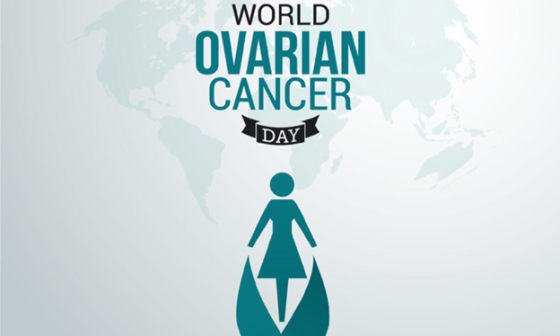“At a very young age, my parents were encouraged by others to let me die because I was not a perfect child, I was a child with sickle cell anemia. My father left his job and stayed home to take care of me for about 2 years, then my mother did the same for another 2 years. Each summer, I was sent to the United States for treatment and rest while my senior brother took great care of me. I was one of the lucky ones’ ‘ – this is Julia Aruya’s story, a sickle cell warrior, as shared on the Sickle Cell information center, a 37-year-old Nigerian. She went ahead to discuss how difficult it was for her to associate and operate effectively in her workplace. She had been through years of mental anguish as a result of stigmatization from her environment.
This story of Julia is also the story of another 4-6 million Nigerians living with sickle cell anemia.

Why is sickle cell anemia common in Nigeria?
Nigeria has the highest burden of Sickle Cell Disease (SCD) in the world and is also the top sickle cell endemic country in Africa, with an annual infant death of about 150,000 representing more than eight percent (8%) of infant mortality in the country.
About 50 million people are living with sickle cell disease globally and Nigeria is the epicenter zone with about 4-6 million people living with the disease (1 in every 4 Nigerians has a sickle cell trait). Annually about 300,000 newly diagnosed sickle cell children are born worldwide. And at least 100,000 babies die from the disorder in Nigeria every year according to 2014 statistics by the World Health Organisation (WHO), making it the number one sickle-cell endemic country in Africa.
Sickle Cell is endemic in Nigeria
The negativity that comes from Nigeria as a result of having sickle cell can kill you emotionally. It is believed that you are disabled already if you have sickle cell, you have got a deadly disease and nobody marries a sickler. Nigerian society lacks these three (3) things;
- Lack of awareness
- Empathy and understanding for sickle cell warriors and the situation explains why they are still being ‘discriminated’ against.
- Adequate health facilities for treatments. Hence, why most people send their sickle cell children abroad to get treatment. But, what happens when it’s not someone who can afford that?
Society has close to zero awareness policies. Couples don’t do thorough medical checkups before getting married. People are being stigmatized because there is no proper understanding of what sickle cell anemia is. The stigma is that if you have got sickle cell, they have already put a death sentence on you, or you are a child of evil. They always have that look of pity.
Sickle cell warriors also lack adequate information on how to take care of themselves to, at least, reduce the impact of the disorder on their well-being. There needs to be an understanding of what sickle cell is all about and this knowledge should be spread across various societies.
Meaning
Sickle cell anemia disease is an inherited blood disorder marked by defective hemoglobin. It inhibits the ability of hemoglobin in red blood cells to carry oxygen. Sickle cells tend to stick together, blocking small blood vessels and causing painful and damaging complications. Sickle cell anemia is a form of anemia — a condition in which there are not enough healthy red blood cells to transport adequate oxygen throughout the body. Hemoglobin is the protein in red blood cells that carries oxygen to the tissues of the body.
So, sickle cell disease interferes with the delivery of oxygen to the tissues. Normal red blood cells can live up to 120 days. But, sickle cells only live for about 10 to 20 days.
What causes Sickle cell disease?
This is an inherited disease caused by defects in the gene. A person can be born with it if he/she inherits two sickle cell genes, one from the father, and the other from the mother. Having a family history of sickle cell disease increases your risk for the disease.
Symptoms and signs
Here are the symptoms and complications associated with sickle cell disease. However, each person may experience symptoms differently. Such symptoms include
- Anemia
- Pain crises of sickle crisis
- Acute chest syndrome
- Splenic sequestration (pooling)
- Stroke
- Jaundice, or yellowing of the skin, eyes, and mouth
Diagnosis
Hemoglobin electrophoresis is a blood test that can determine if a person is a carrier of sickle cell anemia, or has any of the diseases associated with the sickle cell gene.
Challenges faced by sickle cell patients in
- Children with sickle cell can get a stroke – which could be fatal and which could leave them paralyzed for life.
- People with sickle cell sometimes suffer a breakdown or degeneration of the hip joint/bones and end up unable to walk.
- Ineffective emergency access to quality healthcare which results in complications
- Persons with sickle cell tend to suffer extensive, chronic leg ulcers or sores that cause them much debilitation and social isolation.
- Socially, they suffer stigma and discrimination.
- From workplace
- From family
- For school
- From society
Bone Marrow Transplantation (BMT) is a cure for sickle cell, but it is not widely accessible and not everyone with sickle cell is a suitable candidate
Indicators of an emergency situation
Patients and families should watch for the following conditions that need urgent medical evaluation:
- Fever of 101° F or higher
- Chest pain
- Shortness of breath
- Increasing tiredness
- Abdominal swelling
- Unusual headache
- Any sudden weakness or loss of feeling
- Pain that will not go away with home treatment
- Priapism (a painful erection that will not go down)
- Sudden vision change
- Increased infection
- Leg ulcers
- Bone damage
- Early gallstones
- Kidney damage and loss of body water in the urine
- Eye damage
- Multiple organ failure
Tips for managing and living with sickle cell disease in Nigeria
Sickle cell anemia disease is a life-long condition. Although the complications of sickle cell disease may not be able to be prevented entirely, when you look out for the following, you will beat it more than you can imagine.
- Healthy diet
Living a healthy lifestyle can reduce some of the complications. It is important to eat a healthy diet with lots of fruits, vegetables, whole grains, and protein, and drink lots of fluids.
- Vaccination and antibiotics for the prevention and treatment of infections
Avoid infections by getting an annual flu shot, washing your hands frequently, avoiding those who are sick, and getting regular dental exams.
- Have a standby doctor
It is important to have a doctor you can always reach out to and ask questions. Make sure you register with a health platform that can give you access to consultation 24/7. Folic Acid supplementation, Pain medication, and some other therapeutic measure.
- Have a standby pharmacy where you can get drug
Routine drugs like L-glutamine oral powder (Endari), Crizanlizumab (Adakveo), Voxelotor (Oxbryta), and pain-relieving medications, need to be easily accessible. You should always have the number of a pharmacy where you can order original medications, especially in emergency situations. Wellahealth has an online pharmacy that offers 24/7 chronic care.
- Have health insurance
This is for cases where you don’t have disposable cash. You can’t put your health on hold because you don’t have money at the moment. Register with companies that offer health insurance, for example, WellaHealth Micro Insurance packages with Stanbic IBTC At Ease Wallet.
- Always have someone you can call
This can be family members, friends, church members, or someone in your street or compound. Just make sure you have someone’s number you can reach out to in times of emergencies.
Next step
Nigeria needs to work more on tackling the awareness issues in society and building more policies that will help sickle cell patients. Sickle cell disease always comes with its own baggage of other diseases, so much attention needs to be given to patients with sickle cell. Wellahealth has built a health platform that will help people with this chronic condition. You are advised to always sort for information.






